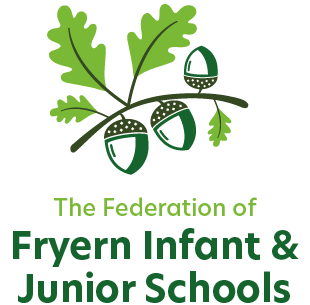History
History vision
At Fryern Infant and Junior schools we believe that our History curriculum should inspire our pupils’ curiosity to know more about the past. History helps pupils to understand the process of change, the diversity of societies as well as their own identity and the challenges of their time.
Intent
We intend on delivering the History curriculum through looking at changes within living memory, events beyond living memory, the lives of significant individuals and significant historical events, people and places in their own locality through high quality teaching and a range of engaging lessons, hands on experiences and inspirational visitors.
Implementation
Our History curriculum has been carefully planned in accordance with the Early Years Framework and The National Curriculum where children build on their history skills over time. It is implemented through exciting learning opportunities, the use of technical vocabulary and application of skills through effective progression for each year group so that children embed key learning, knowledge and skills.
We aim to achieve this in the Early years by giving the children opportunities to:
• Talk about members of their immediate family and community
• Name and describe people who are familiar to them
• Comment on images of familiar situations in the past
• Compare and contrast characters from stories including figures from the past
• Talk about and sequence key events in their recent History
These everyday activities introduce the children to the historical skills of cause and consequence, significance, interpretation, continuity and change, characteristic features of a person/place/event and chronology in a basic way to then be built upon in KS1.
In KS1 children will continue to use these historical skills to undertake enquiry-based learning where they will explore:
• changes within living memory (Toys)
• events beyond living memory that are significant nationally or globally (Titanic/Florence Nightingale)
• the lives of significant individuals in the past who have contributed to national and international achievements (Florence Nightingale)
• significant historical events, people and places in their own locality. (Titanic)
The impact of our history curriculum will equip the children to ask perceptive questions, think critically, weigh evidence, sift arguments and develop perspective and judgment, which they can use to delve deeper into historical periods in time in KS2.
In KS2 children will continue to use these historical skills to undertake enquiry-based learning where they will explore:
• Changes in Britain from the Stone Age to Iron Age
• The Roman Empire and its impact on Britain
• Britain’s settlement by Anglo-Saxons
• The Viking and Anglo-Saxon struggle for the Kingdom of England
• Local history
• A aspect or theme in British history that extends pupils’ chronological knowledge beyond 1066
• The achievements of the earliest civilizations
• Ancient Greece
• A non-European society that provides contrasts with British history
The impact of our history curriculum will equip the children to ask perceptive questions, think critically, weigh evidence, sift arguments and develop perspective and judgment, which they can use to delve deeper into historical periods in time in KS3.

